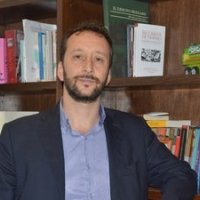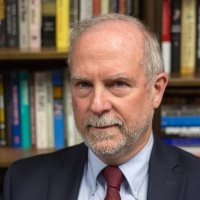Latin America & the Global Cold War
Between the late 1950s and the end the 1970s, Latin American countries developed increasingly powerful interactions with the rest of the Global South. Scholars of contemporary Latin American history, however, have largely neglected this story, generating a collective amnesia on a crucial part of the region’s recent past. During his talk, Professor Vanni Pettinà will show how Latin America and The Global Cold War, the volume he co-edited with Professors Stella Krepp and Thomas Field fills this gap, proving that Latin America and Third World contemporary histories became deeply entangled during the 1960s and the 1970s, making their study as separate subjects almost impossible.
Vanni Pettinà holds a Ph.D. in Contemporary History from the University Complutense of Madrid. He is Associate Professor of International and Latin American Contemporary History at the Center for Historical Studies of El Colegio de México and was John W. Kluge Postdoctoral Fellow at the Library of Congress. He has published articles in the Journal of Latin American Studies, International History Review, Cold War History and Historia Mexicana. He is author of Historia Minima de la Guerra Fría, which will be published in English with UNC Press in 2022 with support from Duke-UNC Latin America In Translation Series Grant. He is coeditor, with Stella Krepp and Thomas Field, of Latin America and the Global Cold War (UNC Press 2021). He is currently working on a book project tentatively titled: From Bilateralism to Globalism - Development and Foreign Policy during Mexico’s Cold War.
The Washington History Seminar is co-chaired by Eric Arnesen (George Washington University and the National History Center) and Christian Ostermann (Woodrow Wilson Center) and is organized jointly by the National History Center of the American Historical Association and the Woodrow Wilson Center's History and Public Policy Program. It meets weekly during the academic year. The seminar thanks its anonymous individual donors and institutional partners (the George Washington University History Department and the Lepage Center for History in the Public Interest) for their continued support.
Speakers



Moderators


Professor of History, The George Washington University. Director, National History Center of the American Historical Association.
Panelists


Hosted By

History and Public Policy Program
A leader in making key foreign policy records accessible and fostering informed scholarship, analysis, and discussion on international affairs, past and present. Read more


Cold War International History Project
The Cold War International History Project supports the full and prompt release of historical materials by governments on all sides of the Cold War. Read more


Latin America Program
The Wilson Center’s prestigious Latin America Program provides non-partisan expertise to a broad community of decision makers in the United States and Latin America on critical policy issues facing the Hemisphere. The Program provides insightful and actionable research for policymakers, private sector leaders, journalists, and public intellectuals in the United States and Latin America. To bridge the gap between scholarship and policy action, it fosters new inquiry, sponsors high-level public and private meetings among multiple stakeholders, and explores policy options to improve outcomes for citizens throughout the Americas. Drawing on the Wilson Center’s strength as the nation’s key non-partisan policy forum, the Program serves as a trusted source of analysis and a vital point of contact between the worlds of scholarship and action. Read more
